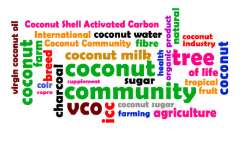THE ECONOMICS OF COCONUT REPLANTING AND ASSOCIATED CROPPING (IN FIJI)
Abstract
The importance of coconut stems primarily from its being an export crop. Coconut largely constitutes a crop of convenience in the basically agricultural, mainly subsistence, essentially rural-based economy of Fiji. It provides a basic dietary component and a source of cash income to meet social responsibilities, and employment opportunities in the various areas in which it is grown. Indeed, after sugar, coconut oil is Fiji's second most important agricultural export.
References
2. Michael Lipton Theory of the Optimising Peasant, Occasional Paper Series, Institute of Development Studies, University of Sussex, 1968.
3. Maria Paulo: Coconut based Farming Systems in Fiji, Sumith de Silva (ed.), Coconut based
Farming Systems: Proceedings of the XXVII Cocotech Meeting, 1990.
4. Maria Paulo, op.cit. p. 137.
5. K. V. A Bavappa, Management of Coconut based Farming Systems, in Sumith de Silva (ed.) op. ct p. 493
6. Prafulla K. Das, Economics of Coconut based Farming Systems, in. Sumith de Silva (ed.) pp.cit, p. 539.
7. P. K. Das, op. cit.











